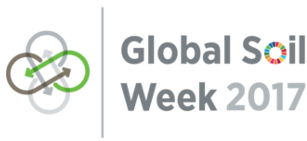Almost two thirds (65 per cent) of Africa´s cropland is affected by severe land degradation. Sustainable land management (SLM) is seen as the best way to combat and even reverse land degradation. In Malawi, where the majority of the population depends heavily on farming, there have been extensive efforts by governmental, non-governmental and research organisations to promote SLM among smallholders. Significant progress has been made. “The one thing about Malawi: we respect authorities, so the local leadership has a very direct influence on what the farmers are doing and how they adopt sustainable technologies,” explained Norias Kayira, a senior agriculturist project officer at Catholic Relief Services. But on the whole, SLM adoption remains low. Research from sub-Saharan Africa suggests that this has less to do with the interventions themselves than with social and economic drivers.

At the beginning of the International Year of Soils, the IASS´s AGORA project conducted a workshop on Sustainable Land Management (SLM) in Malawi. On 21 January, about 40 stakeholders convened in Lilongwe. Participants from diverse backgrounds – researchers, policy-makers, NGO representatives working on the ground, donors and development practitioners – focused on “Tackling the Social and Economic Drivers of Land Degradation in Malawi”. There was broad agreement that for the adoption of SLM techniques, understanding the context is crucial, especially from the point of view of farmers, who know best what fits their needs. As one participant put it, “farmers may not be the best scientists, but they are certainly the best researchers.” This issue was discussed in conjunction with the question “Sustainable Land Management for whom?”, where the need to show farmers how national interests are compatible with their own interests was highlighted.
The discussion revolved around incentives (for those who are to adopt the techniques as well as for those who promote them), the need for better coordination of interventions and the available fora for this, as well as the pitfalls of short-termism in SLM projects. Participants stated that there was a lot to learn from AGORA´s work, namely its transdisciplinarity and a landscape approach that considers both the geographical and socio-economic aspects in the different, interrelated parts of a given landscape.
With this workshop, AGORA—a project of the International Center for Tropical Agriculture (CIAT), Total Land Care, Bunda College (LUANAR), and the Selian Agricultural Research Institute (SARI) in Tanzania—wanted to create a forum for discussing lessons learned and the ongoing challenges faced by organisations working to implement SLM in Malawi. More specifically, the workshop aimed to take stock of SLM activities in Malawi, discuss lessons learned and the challenges of adoption, and present AGORA´s approach and activities to the participants.
Photo: (c) Katrin Wlucka/IASS
29.01.2015
